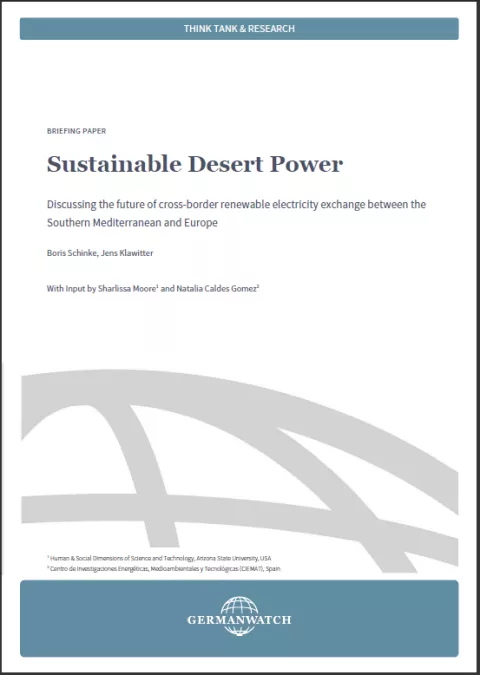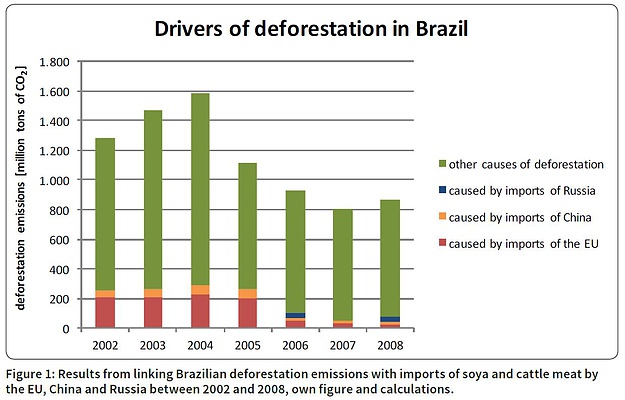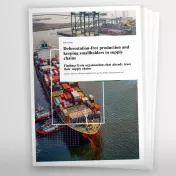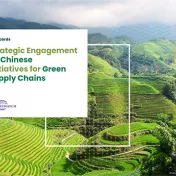
Reducing greenhouse gas emissions to limit global warming to well below 2°C or even to 1.5°C, as emphasised by world leaders in the Paris Agreement reached in December 2015, can only succeed if deforestation is cut dramatically in the next decades because the resulting emissions nearly make up one fifth of all greenhouse gas emissions worldwide.
Most of the world’s deforestation is happening in South America and in Africa. Brazil has been the country with the largest deforestation for many years. It is far away from Europe, so can we lean back and put all responsibility for causing the emissions on Brazil? No! We need to look at the drivers of this deforestation to develop effective climate change mitigation policies – and here the EU is clearly involved.
Deforestation in Brazil, especially in the Amazon rainforest and the Cerrado savannah, happens mainly due to the establishment of pastures for cattle as well as cropland to grow soya. Cattle meat and soya – as beans, cake or meal – are very important export goods of Brazil, and this is where international demand, hence the EU as the world’s third largest net importer of agricultural products comes into play.
This study tries to answer the question “Is the EU a major driver of deforestation in Brazil?” and quantifies the CO2-emissions resulting from deforestation caused by the production of beef and soya that is imported from there. This quantification includes an estimation of indirect land use change (iLUC) due to the prevalent pattern that much of the soya is planted on former pastures thus not directly leading to deforestation but indirectly because its expansion is boosting new deforestation for the displaced cattle pastures. For this purpose an own country- and situation-specific method was developed.
The results reveal that the EU has been the largest foreign driver of deforestation in Brazil in the years between 2002 and 2006. In 2005, the year with its largest impact, the EU was responsible for 19 % of deforestation which equals about 780,000 ha and consequently for 200 million tons of CO2-emissions, which corresponds to 18 % of Brazilian deforestation emissions. [...]




